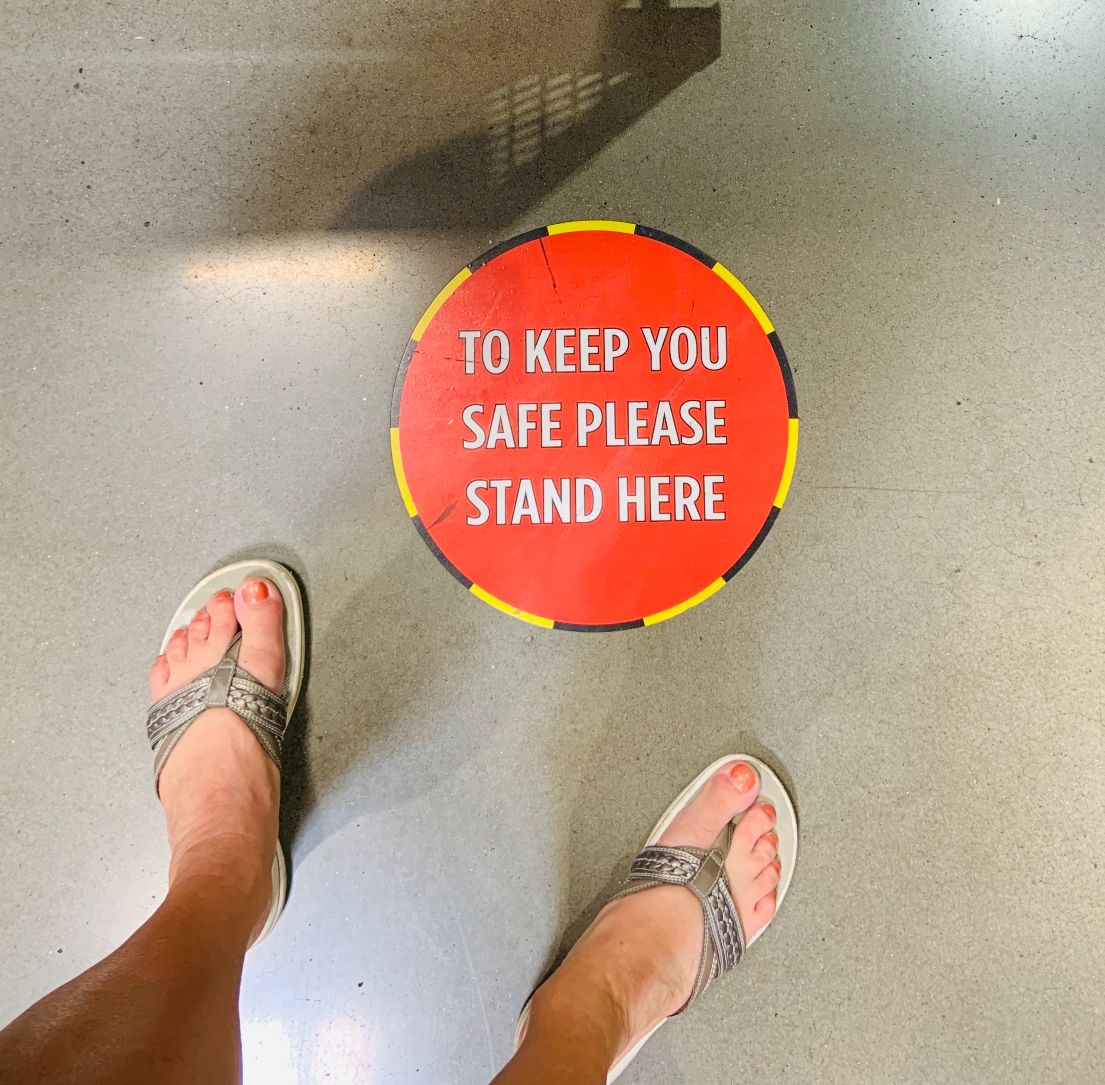Mourning our “Old Normal”

Those were the days . . . when we were structured with work/home/school and normal routine . . . when the kids were part of social activities and spectators were encouraged and welcomed . . . when we could have a girls’ or guys’ night out spending time talking into the wee hours of the night . . . when we spent time at the office and enjoyed calling it a day and heading home . . . when we could enjoy a special evening out with others for a birthday celebration . . . when random little connections with others were easy and maybe not so appreciated . . . when cousins could gather at grandma’s house for a sleepover . . . when we felt safe and secure and didn’t have to worry about connecting and causing ourselves or others harm.
Those days, as we knew them, are probably gone. Things will get back to a rhythm and a normal structure, but it will be a new normal. With all that has happened, we will not have the same sense of predictability and structure and safety that we once had. With all these changes, in the days as we knew them, has come loss. We, as a world, have experienced many losses. Of course, there are the significant losses of our loved ones, our jobs, our health. But even if we have not had these losses, each of us has been part of the collective losses that are secondary losses and still impact how we feel. We have lost our lives as we knew them – social connections, financial security, our normalcy, and our sense of safety. The feelings of loss and possible grief from these losses are real. As each person in the world goes through some version of these changes, these losses, it brings up a communal grief. That, in itself, is extraordinary. We are in this together as a world. We are a resilient people, and we will move through this, but understanding that we are grieving and taking the time to heal from the grief is a step towards being back on track to a “normal day” and a “normal routine” and a “normal life”. It is a step towards mental health and wellness.
One of the best ways to deal with grief is to name it as grief. Naming grief for what it is can be powerful. When you name it, you can feel it and it can move through you. Grief can be multiple feelings that come up and need to be managed. Allowing yourself to feel the feelings and let them move through you will be healing. This, versus telling yourself that you should not be feeling this as other people have it worse, will help you move through it. Feel your sadness. Feel your fear. Feel your anger. Allowing the feelings to rise up and move through you is how you walk through the grief. Avoiding the feelings will not help. (Berinato, 2020) You might access your feelings about the pandemic and life as you once knew it through journaling, talking to a friend, or through music or art or movement. Use whatever mode that is comfortable to you.
It is fair to acknowledge and validate what we have been through, what losses we have experienced, and how life is so different now. It is fair to say we are experiencing grief. It is a healthy way to manage this pandemic experience. If you find that you can’t quite move through it, reach out for some mental health sessions. Don’t ignore it or think it will probably dissipate and go away. Take some action to help it move through you in an effective way so you can reclaim your “new normal” and find your rhythm and footing again, however different this might be.
Works Cited
Berinato, S. (2020, March 23). https://hbr.org/2020/03/that-discomfort-youre-feeling-is-grief. Retrieved from https://hbr.org: https://hbr.org/2020/03/that-discomfort-youre-feeling-is-grief
ABOUT THE AUTHOR

Janie Pfeifer Watson
Licensed Independent Clinical Social Worker
Licensed Independent Mental Health Practitioner- Janie Pfeifer Watson, LICSW, is the founder and director of Wholeness Healing Center, a mental health practice in Grand Island, Nebraska with remote sites in Broken Bow and Kearney. Her expertise encompasses a broad range of areas, including depression, anxiety, attachment and bonding, coaching, couples work, mindfulness, trauma, and grief. She views therapy as an opportunity to learn more about yourself as you step more into being your authentic self. From her perspective this is part of the spiritual journey; on this journey, she serves as a mirror for her clients as they get to know themselves—and, ultimately, to love themselves.
LATEST ARTICLES BY Janie Pfeifer Watson
- Letting Life Unfold – Embracing the Musical Nature of Existence
- Silence Good for the Brain and for your Mental Health
- Mastering Resilience: How to Manage your Response to Challenging Situations
- Celebrating 25 Years of Business A Journey Marked by Resilience, Growth, and the Power of Community
- COVID-19 – Heightened Mental Health Awareness and Employer Appreciation
Subscribe today
Sign up to receive the latest mental health tips and inspiration